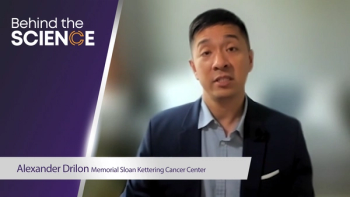
Four oncologists discuss lung research presented during the 2022 ASCO Annual Meeting.

Four oncologists discuss lung research presented during the 2022 ASCO Annual Meeting.
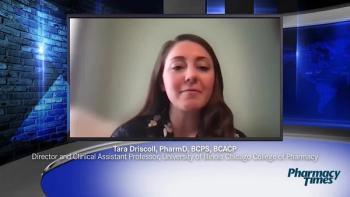
A panel of experts discuss allergic rhinitis and important counseling points and tactics. They review the current standard of care and identify specific treatment considerations for children, women, elderly, and others.

Andre Abreu, MD, of the University of Southern California, Los Angeles shares what makes his institution’s MRI fusion biopsy and focal therapy programs unique.

Ahead of the 6th Annual School of Nursing Oncology Meeting, Oncology Nursing News® met with various presenters and asked: What is the oncology nurse’s role in biomarker testing?

Dr. John Martin discusses the world’s first single-probe, whole-body ultrasound device.
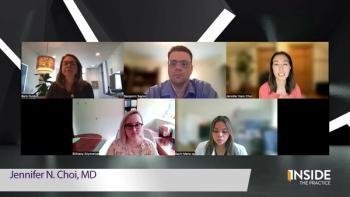
Providers from Northwestern University’s EDGe BRCA+ Men’s Clinic discuss the program and how it provides coordinated multidisciplinary care for men age 40 and older with mutations in the BRCA1 or BRCA2 gene.

Ash B. Alpert, MD, MFA, highlighted disparities unique to patients with cancer who are part of the lesbian, gay, bisexual, transgender, and queer (LGBTQ+) community. In particular, they touched on 2 studies that they presented at the 2022 American Society of Clinical Oncology Annual Meeting. These studies focused on cancer risk factors unique to transgender patients and the impact of interpersonal violence on cancer risk for this population. Moreover, Alpert discussed what cancer care providers can do to create a more welcoming environment for LGBTQ+ patients with cancer
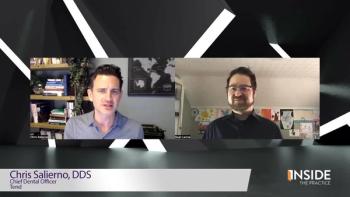
The dental industry is shifting from its traditional solo practice model to a more focused, group practice approach. This is leading to the rise of new approaches to what a dental practice can look like, and in the case of growing dental practice group Tend, this means sleek spaces designed to appeal to the Instagram generation. In this interview Dental Products Report Editorial Director Noah Levine speaks with Tend’s Chief Dental Officer Chris Salierno, DDS about what makes Tend’s patient experience stand out in the dental industry.
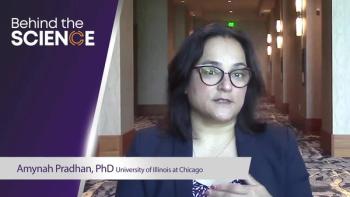
While onsite at the American Headache Society’s Annual Scientific Meeting, NeurologyLive caught up with a number of experts in the care and science of headache medicine to hear about some of the hottest topics in the clinical care of migraine. They offered insights into the state of science around status migrainosus, the disparity in funding relative to disease burden, the underlying cellular process in migraine, and the research into psychedelics as therapeutics for headache disorders.

John O. Mascarenhas, MD discusses the emerging treatments for myelofibrosis for patients being treated in the frontline setting and for those who have received prior ruxolitinib.
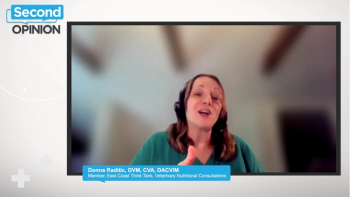
Dr. Robert Silver and Dr. Donna Raditic discuss nutraceuticals for pets covering their pros and cons, and the National Animal Supplement Council regulations. They also touch upon what further research is needed in this realm and what they see for the future of veterinary nutraceuticals.

Lisa Vigil Schattinger, MSN, RN, discusses her experience with medical aid in dying, and what oncology nurses need to understand when supporting patients at the end of their lives.
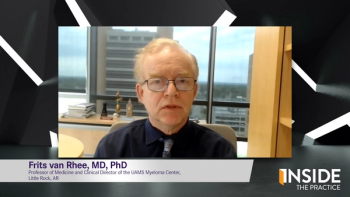
The University of Arkansas for Medical Sciences Myeloma Center became the first institution in the state to offer CAR T-cell therapy for patients with multiple myeloma. Frits van Rhee, MD, PhD, joins to discuss.
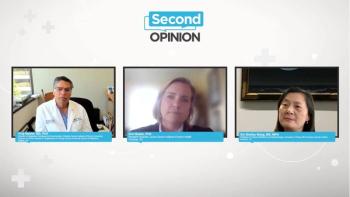
Research Scientist Dr. Dori Beeler, of the Levine Cancer Institute of Atrium Health and corresponding author for the manuscript titled “Cancer-Related Fatigue Outcome Measures in Integrative Oncology: Evidence for Practice and Research Recommendations” that was recently published in the May issue of the journal ONCOLOGY®, was joined by co-authors Dr. Shelley Wang, of The University of Texas MD Anderson Cancer Center, and Dr. Viraj Master, of the Winship Cancer Institute of Emory University, to discuss their research. They touched on challenges in treating patients with cancer-related fatigue, such as the subjective nature of patient-reported outcome measures and the limited ability for cross-comparison across trials. In the paper, the authors compare tools for cancer-related fatigue, considerations for choosing between scales, and how to best implement them into clinical trials and daily practice. The experts provide a broad overview of their research in this episode.
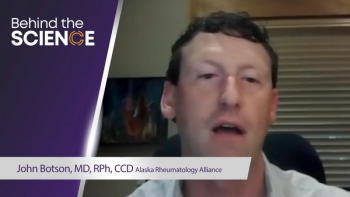
Amid the COVID-19 pandemic and beyond, rheumatologists have felt the effects of physician burnout in part due to a shortage of rheumatologists, keeping up with changes in telemedicine, and general COVID-related fatigue. How did these rheumatologists prevent burnout during this time?
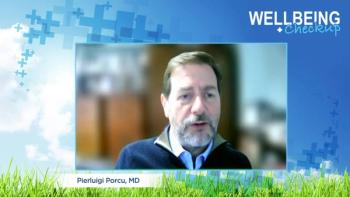
Pierluigi Porcu, MD, discusses the need the include a diverse population of patients when enrolling for clinical trials in oncology.
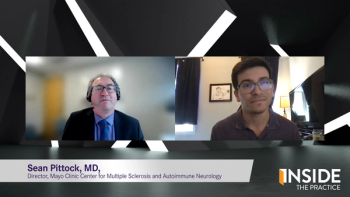
Sean Pittock, MD, of Mayo Clinic, dives into the technical capabilities the MS Center, and more specifically, the neuroimmunology laboratory, have to treat patients with multiple sclerosis and other neuroimmune disorders.

Dr. Zacariah Hildenbrand shares his various research interests as well as the challenges facing the cannabis and hemp cultivation industry. Dr. Hildenbrand also shares a preview of his upcoming talk and overall session he will chairing at Cannabis Science Conference East taking place September 14-16 in Baltimore, Maryland.
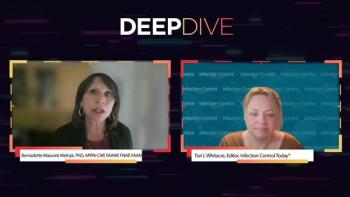
Without infection preventionists, the COVID-19 pandemic would have been far worse and lasted far longer. But at what cost to the infection preventionists? Bernadette Mazurek Melnyk, PhD, and her colleagues examined how COVID-19 affected infection preventionists’ mental and physical health, and in an exclusive interview, she discusses how facilities and infection preventionists themselves can mitigate burnout.
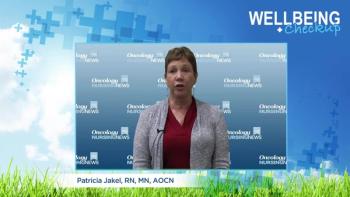
In this episode of Wellbeing Checkup, Patricia Jakel, RN, MN, AOCN, and co–editor-in-chief of Oncology Nursing News®, highlights the importance of self-stewardship in oncology nursing.
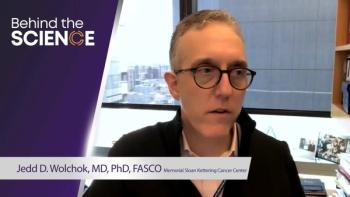
Immunotherapy has drastically improved outcomes for patients with advanced skin cancers, but more work still needs to be done in this field. Two experts, Jedd D. Wolchok, MD, PhD, FASCO, and Barbara T. Ma, MD, MS, discuss the impact immunotherapy has had on different types of skin cancer, including melanoma and basal cell and squamous cell carcinoma, as well as the potential side effects of these drugs, and where research should turn to next.

Robert J. Silver, DVM, MS explains the ins and outs of nutraceuticals for musculoskeletal arthritis in pets. This included the nutraceuticals available on the market, plus the advantages of a multimodal approach, controversy surrounding these products, and more.
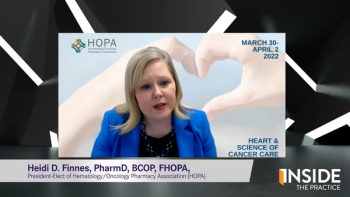
Heidi D. Finnes, PharmD, BCOP, FHOPA, president-elect of Hematology/Oncology Pharmacy Association (HOPA); senior manager of pharmacy cancer research at the Mayo Clinic Cancer Center; assistant professor of pharmacy in the Mayo Clinic College of Medicine; and director of the Mayo Clinic Cancer Center Pharmacy Shared Resource, discusses the value of in-person networking and educational events at oncology pharmacy conferences so that health care professionals can grow their professional community and their practice in the field.
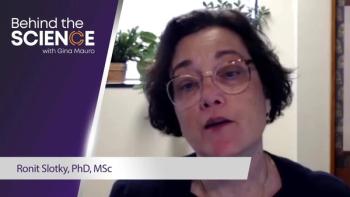
Ronit Slotky, PhD, MSc, of Hackensack Meridian Health, dives into ongoing research and the role of stem cells in the treatment of multiple myeloma.

In the wake of the FDA approval of the EksoNR robotic exoskeleton for use in multiple sclerosis rehabilitation, Dr. Francois Bethoux, the chair of Cleveland Clinic’s Department of Physical Medicine, spoke with NeurologyLive about the functions of the exoskeleton and its use in a real-world clinic setting. He also touched on the available data, the major take-home points for clinicians, and the need to further analyze large datasets to identify the optimal patient populations for it.
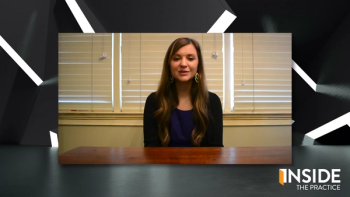
In an interview with HCPLive during the Society for Dermatology Physician’s Associates (SDPA) 2022 Annual Meeting this June, Savanna Perry, PA-C, creator of The PA Platform and a physician’s assistant at Evans Dermatology, discussed her meeting session on building social presence as a healthcare professional. Perry first become interested in building an online audience when she took to blogging early into her career as a PA. Eventually her consultation business The PA Platform took off, and Perry expanded her marketing and education efforts to social media. She learned how to incorporate her profession into content that’s catered to people interested in pursuing a career in her field. Perry spoke with us on The PA Platform, her goal across social media, the services she provides aspiring PAs, the importance of combating dermatology misinformation, and advice for colleagues looking to launch an online presence.
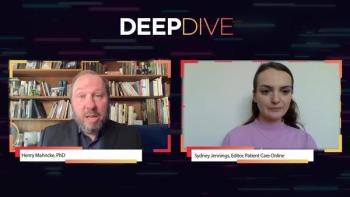
As more US states legalize cannabis for either medical or recreational purposes, more patients may start using cannabis or be open about discussing their past and/or current use with their clinician. On today’s episode of Deep Dive, Henry Mahncke, PhD, research neuroscientist and CEO of Posit Science, discusses the impact of cannabis use on brain health and shares his tips for how to help patients safely navigate their cannabis use.

The mRNA vaccines by Pfizer BioNTech and Moderna have been approved by the Centers for Disease Control for children as young as 6 months. Today, Contemporary Pediatrics talks with Carlton KK Lee, editor for The Clinical Pharmacologist’s Notebook for Contemporary Pediatrics; Residency Program Director, and associate professor, Department of Pediatrics, John Hopkins Medical Institutions, Baltimore Maryland; and Andrew J. Schuman, clinical assistant professor of pediatrics, Geisel School of Medicine at Dartmouth, Hanover New Hampshire as to who is best equipped to deliver the COVID vaccines to our littlest population.
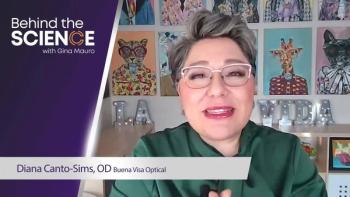
Optometrists share what they wish they knew when first entering their field.
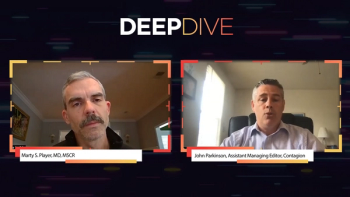
Primary care providers are often the clinicians who first diagnose patients with HIV or see patients who might be at risk for it. However, it is well-known that medical school students get limited training and education for treating members of the LGBTQ+ community. And many may have limited clinical care experience with these patients in their practices. As such, primary care physician, Dr. Marty Player, offers some insights into gender affirming care and strategies when having conversations around sexual health and topics like PrEP and HIV testing.